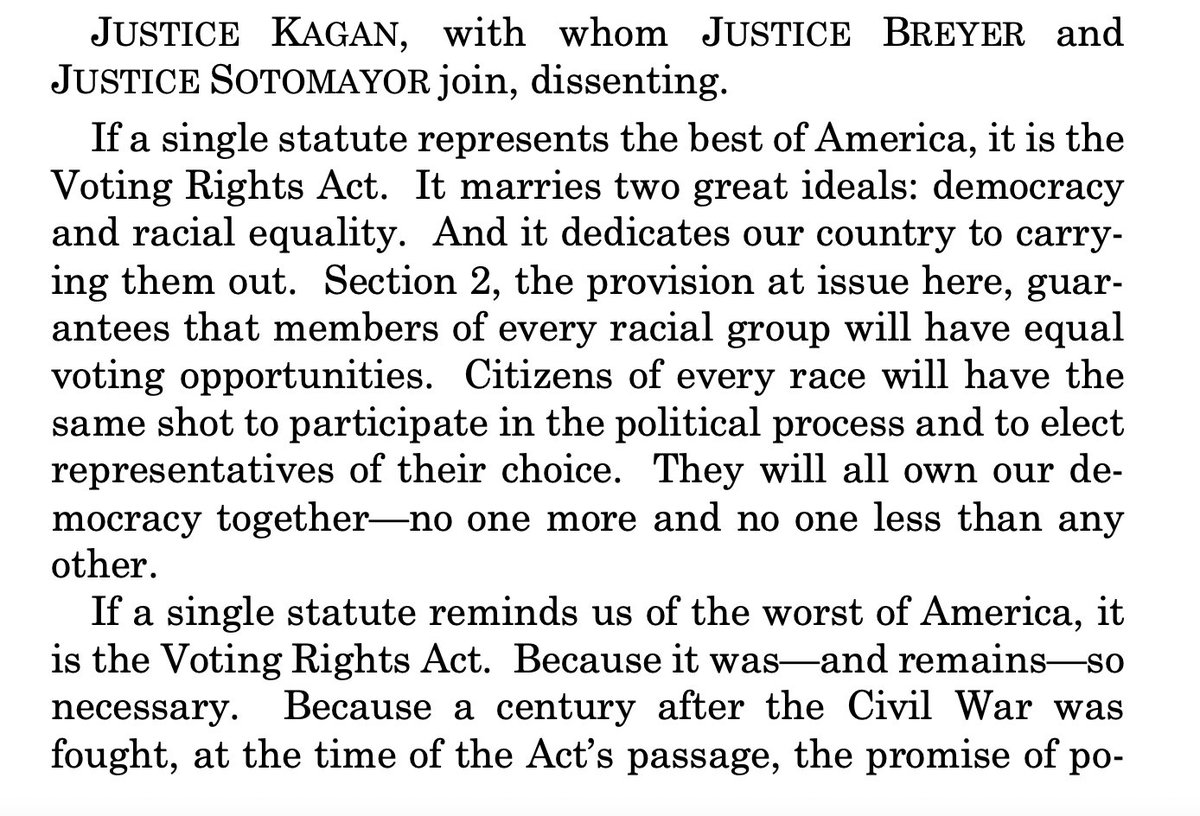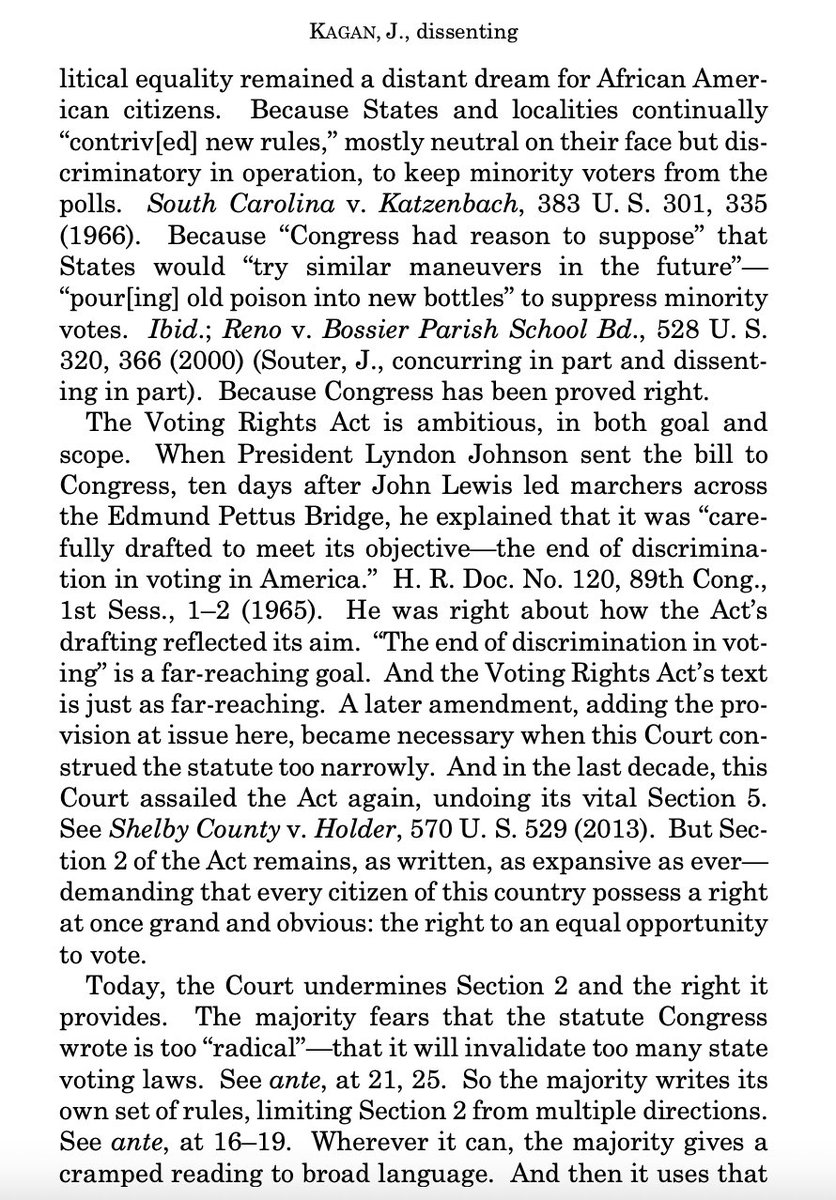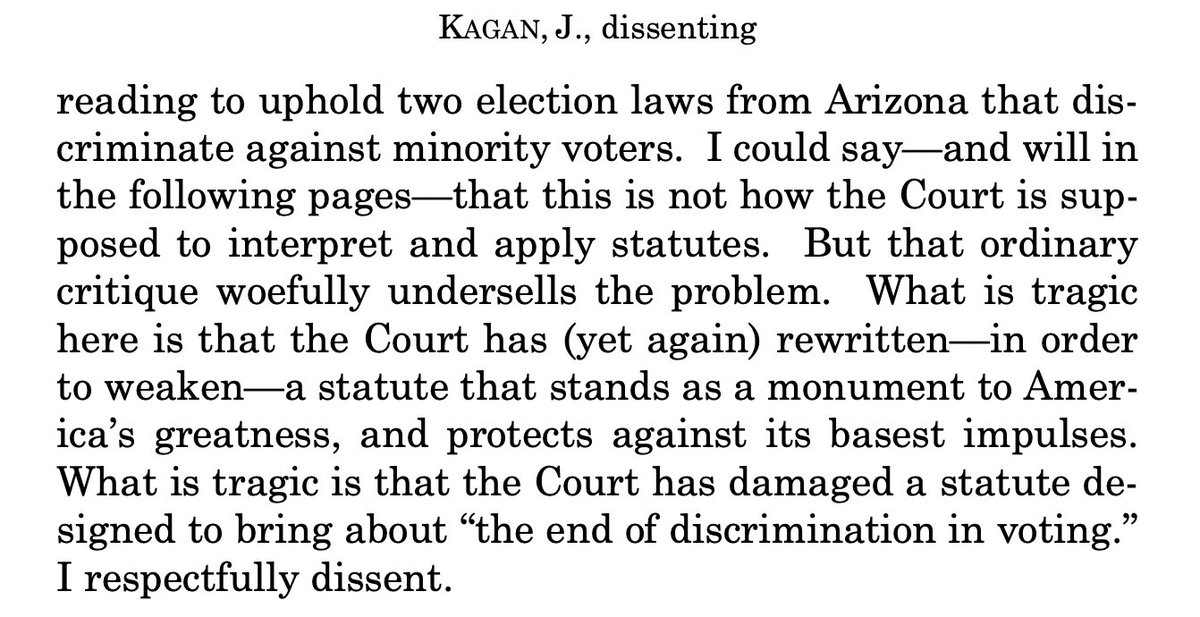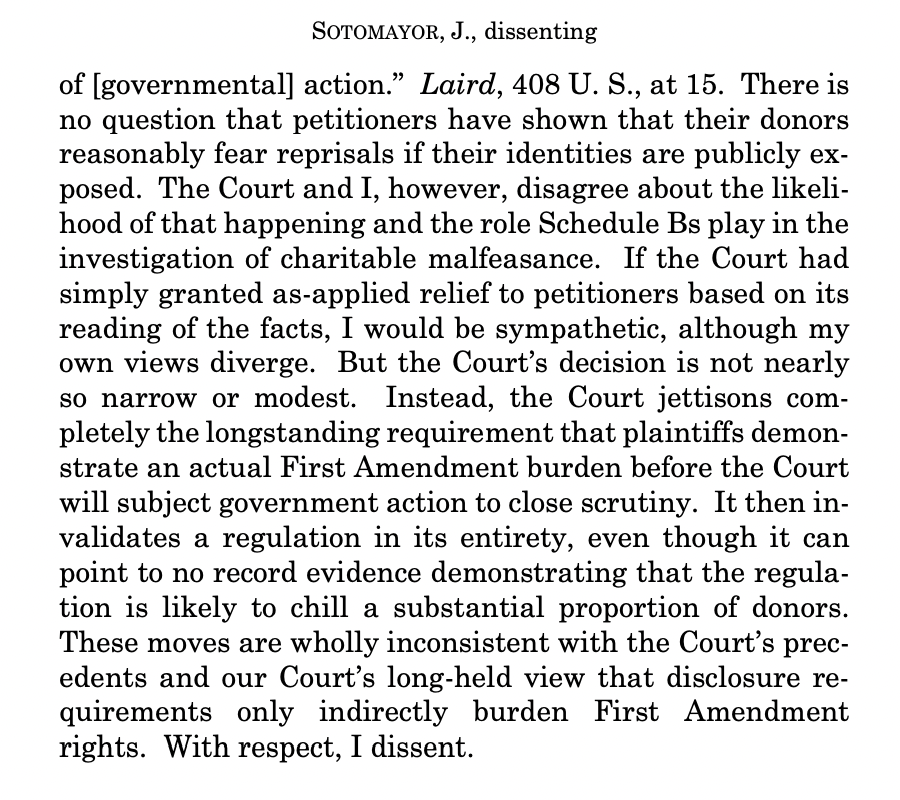The Supreme Court's FIRST opinion of the day is in Brnovich, the Voting Rights Act case. It's a 6–3 decision with Alito writing the majority. All three liberals dissent. supremecourt.gov/opinions/20pdf… 

The Supreme Court holds that neither of Arizona's challenged voting restrictions violates Section 2 of the Voting Rights Act. supremecourt.gov/opinions/20pdf…
The Supreme Court weakens, *but does not eradicate,* the Voting Rights Act's "results test"—which gauges the impact of voting restrictions on minorities—in cases (like this one) that involve "vote denial" rather than "vote dilution." supremecourt.gov/opinions/20pdf…
Kagan, dissenting: "What is tragic here is that the Court has (yet again) rewritten—in order to weaken—a statute that stands as a monument to America’s greatness, and protects against its basest impulses." She repeatedly calls today's decision "tragic." supremecourt.gov/opinions/20pdf… 





Kagan, dissenting: "The majority fears that the statute Congress wrote is too 'radical'—that it will invalidate too many state voting laws. So the majority writes its own set of rules, limiting Section 2 from multiple directions."
Here is her kicker: supremecourt.gov/opinions/20pdf…
Here is her kicker: supremecourt.gov/opinions/20pdf…

In the Supreme Court's second and final opinion of the day, Americans for Prosperity, the majority holds that California's donor disclosure law is FACIALLY INVALID under the First Amendment. 6–3 decision, all three liberals dissent. supremecourt.gov/opinions/20pdf… 

Chief Justice Roberts' opinion for the court in Americans for Prosperity is VERY broad. He rejects the possibility of narrower, as-applied challenges and holds that California's donor disclosure law is unconstitutional on its face. A huge decision. supremecourt.gov/opinions/20pdf…
Yes, Roberts' decision imperils campaign finance disclosure laws. No other way to read it. He applies a very stringent standard to all "disclosure regimes." This is what democracy advocates feared the conservative majority would do in this case. supremecourt.gov/opinions/20pdf… 

As Sotomayor notes in dissent: "Today’s analysis marks reporting and disclosure requirements with a bull’s-eye." Not just California's donor disclosure law—all disclosure requirements. Including those relating to elections and campaign finance. supremecourt.gov/opinions/20pdf… 

Sotomayor calls out the conservative majority for
jettisoning precedent, saying today's court "apparently has a different view of its role," one that is "wholly inconsistent with the Court’s precedents and our Court’s long-held view ..."
supremecourt.gov/opinions/20pdf…

jettisoning precedent, saying today's court "apparently has a different view of its role," one that is "wholly inconsistent with the Court’s precedents and our Court’s long-held view ..."
supremecourt.gov/opinions/20pdf…


The Supreme Court closes out its term with two gut punches to democracy. Americans for Prosperity is as bad as it could possibly be. Brnovich is not the worst-case scenario, but it is still very, very bad. The Voting Rights Act is in grave peril at SCOTUS. Both 6–3 decisions.
• • •
Missing some Tweet in this thread? You can try to
force a refresh











